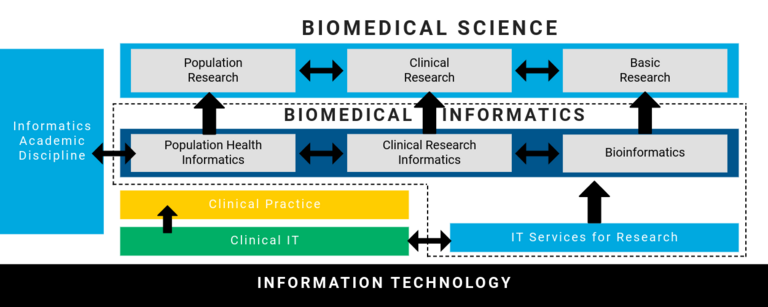Main navigation
Data Collection & Management
Discover tools for collecting and managing research data, such as REDCap, MyCap, UI Bioshare, and I-CTMS.
Epic Tools for Research
Learn more about leveraging tools in the EHR for clinical research.
Data Resources Learn More
Learn more about the data, tools, and technology available for data science and clinical research (IHDR)
Get Data
Already know what you need? Start a data request
Informatics Consulting
Get help, register for training, or set up a consult to discuss your research goals.
Grant Development & Support
Need information on planning for a grant or a project?
What we do
Biomedical Informatics plays a vital role in advancing translational science both regionally and nationally by offering comprehensive informatics support services, developing innovative tools, and leveraging existing information technology resources. It provides essential IT services that enable researchers to effectively analyze and manage biomedical data, while also assisting them in utilizing information technology to support and enhance health research efforts.
|

|
Drop-in hours
Virtual Drop-in hours support:
- Monday 1:00 pm-3:00 pm CST
- Wednesday 1:00 pm-3:00 pm CST
- Friday 9:00 am - 11:00 am CST
Join us here. Use the same credentials you use to log into REDCap to attend.
Contact Information
Heath Davis
- Email: icts-bmi-consulting@healthcare.uiowa.edu
- Phone: (319) 384-5409